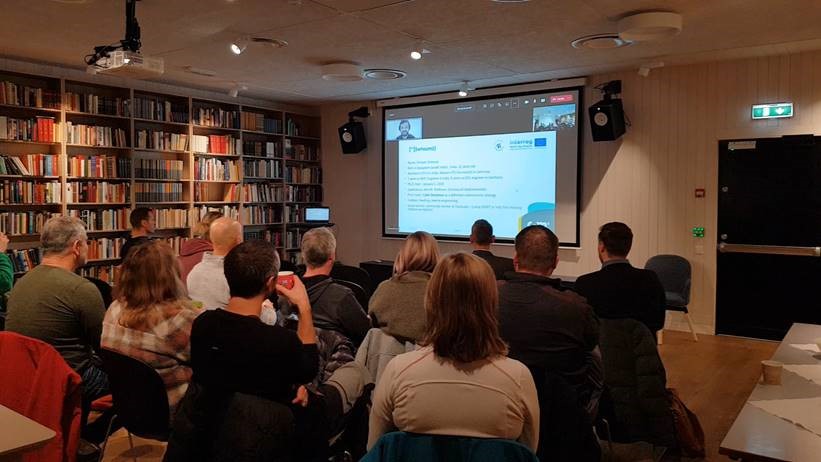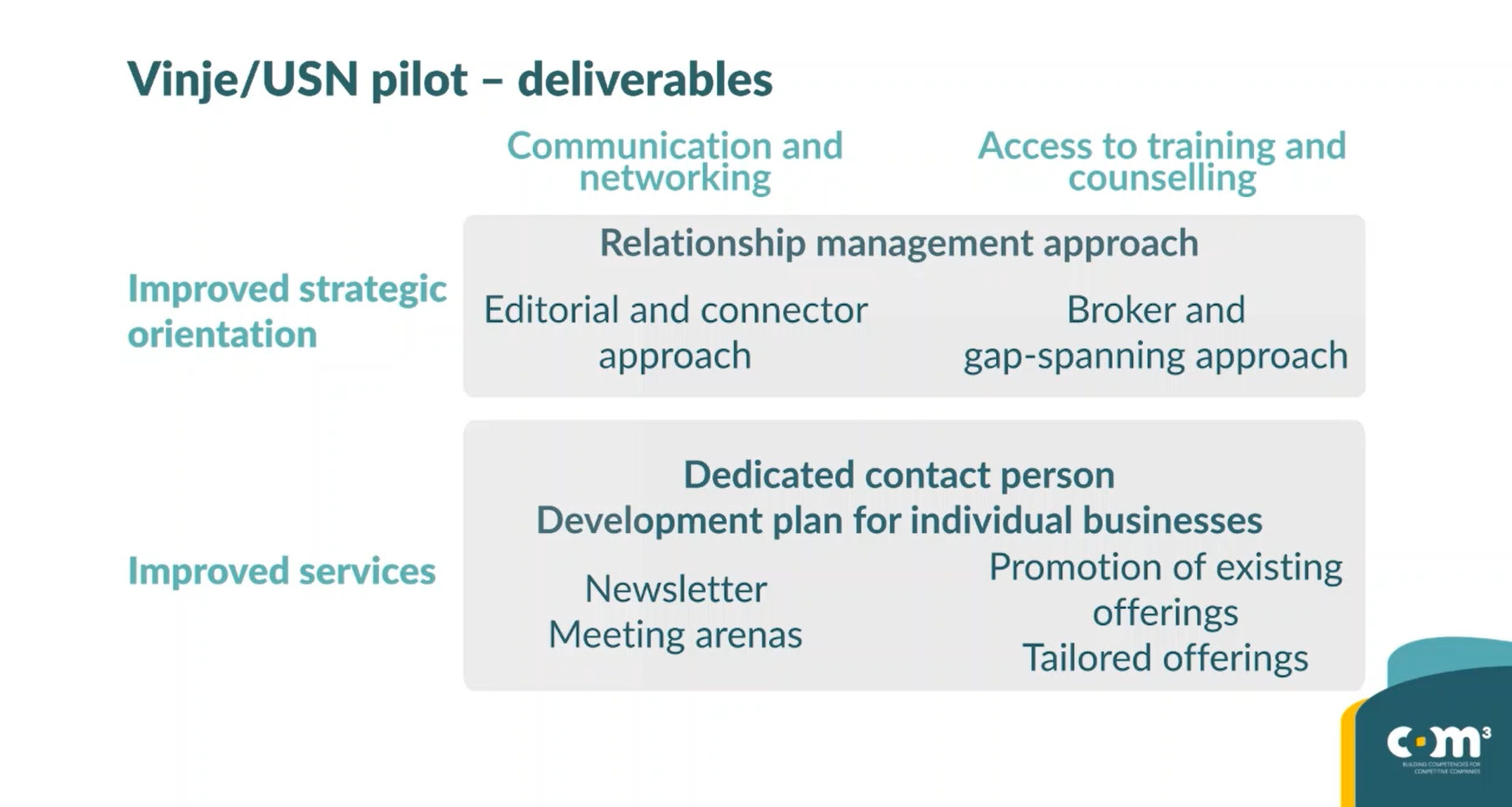Strengthening the municipal administration’s role as supporter for local business development in Vinje, Norway
Vinje is a truly rural community, characterised by a small and dispersed population and small businesses. To sustain our community, we are dependent on a healthy business life. The municipal authorities therefore have a strong interest in supporting local business and facilitating business development. Local businesses, on their side, encourage the authorities to take on a central role in business development to help overcome key challenges. The aim of the Vinje and USN pilot is to help shape this role.
Challenges
One of the general challenges emphasised by businesses in Vinje is a limited access to key resources for development, including skilled labour, competencies and networking opportunities. This challenge is accentuated by global trends, such as the rapid digitalisation of our society. The insights phase of the pilot, consisting of a workshop and in-depth interviews with businesses, helped us confirm and elaborate on this general challenge. Among the more specific challenges/needs identified, we decided to focus on communication and networking, as well as access to training and counselling.
Problem solving process

The municipal authorities in Vinje have a long tradition in prioritising business support activities, encouraged by local businesses themselves. The original aim of the pilot was to tackle key challenges by strengthening this municipal support role, and the pilot has confirmed the validity of this strategy. In the ideation phase of the project, the pilot team connected with local, regional, national and European partners and resources to find ways to meet the business needs within the two focus areas. The international and multi-actor character of the COM³ project ensured diverse and highly valuable input to our local pilot.
Solutions
First of all, we wanted the pilot to result in an improved strategic orientation of our work with business support. The pilot therefore aimed to produce new modules in Vinje’s business support strategy and plan, corresponding to the two focus areas. Secondly, we wanted to use the pilot to develop and test a set of new and improved services that may meet the needs within the two focus areas.
In terms of better communication and networking, we set out to do the following: (1) Start thinking of the municipal business support department as an “editorial office” and strengthen our work with information directed at businesses, including a dedicated newsletter. (2) Initiate and support new meeting arenas, including dialogue meetings with the head of business. (3) Consider a new approach to individual business support, including a dedicated contact person for each business. (4) In cooperation with the county authorities, build a knowledge base on local business life, based on publicly available data and possibly on new survey data.
In terms of access to training and counselling, we set out to do the following: (5) Start thinking of the municipal business support department as a broker between local businesses and existing providers of competency services. More specifically, this means mapping local needs and existing services, and trying to match the two. (6) Organise/develop tailored training where we see a local need for this. (7) Together with a regional provider of competency services and learning management systems (LMS), run a small pilot project testing whether a shared LMS for small companies is viable.” (8) Engage students from the regional university USN in local business development.

Results and outcomes
We managed to integrate the COM³ pilot in the ongoing business support strategy process, and COM3 has contributed greatly to the strategy work, especially within the two focus areas. The participation in the COM3 project will therefore have a lasting impact on the municipality’s strategic orientation when it comes to business support. We have also initiated and tested a set of new services to meet the needs identified within our two focus areas:
(1) We have launched a newsletter where we regularly share important and interesting content aimed at local companies. The majority of local companies subscribe to the newsletter, and the stats indicate that a significant share of the companies read the content. Feedback from subscribers has also been very positive.
(2) We have established a new meeting arena for local companies. The physical meetings include keynote speakers, updates from and dialogue with the municipality, as well as dinner and socialising. 20-30 companies have been attending on average, and feedback has been positive.
(3) Our business support strategy is still under revision and so is our approach to individual business support, including a dedicated contact person for individual companies. A more systematic approach such as this will require organisational changes and significant resources, but may become part of our strategy in the future.
(4) In cooperation with the county authorities, we planned a common project to build a knowledge base on local business life, based on publicly available data. Due to resource constraints at the county level, this project had to be put on hold. We may however come back to the idea in the future, as our business support strategy can greatly benefit from this kind of knowledge base.
(5) We have started to more actively communicate existing competency services directed at companies, both on our website, in our newsletter, and at the business support meetings. In the future, we hope to improve our knowledge on local competency needs and existing services, as well as our ability to match the two.
(6) We invite interesting keynote speakers to our business meetings, focusing on local needs and interests. In the future, we may expand this type of activity and organise/develop tailored and specific training courses if we consider this relevant.
(7) Together with a regional provider of competency services and learning management systems (LMS), we have completed a pilot project testing a collaborative LMS solution in a small company setting. While conducting the pilot, we identified two regional projects that are looking into the same type of solution on a larger geographical scale. Rather than pursuing a local solution in Vinje, we decided to use our remaining project resources to engage in the two regional initiatives, providing our experience and assistance.
(8) Together with our university partner, we have conducted two projects where students have worked on digital challenges presented by local companies. The feedback from both students and companies has been positive. We have also engaged a master’s student in sustainability management to provide input on how the sustainability concept may be integrated in the business support strategy. We intend to continue engaging students in similar ways in the future.
We hope and believe that most of these services will prove successful and sustainable in the long term, leading to better communication, stronger networks, and more competent businesses in Vinje.

